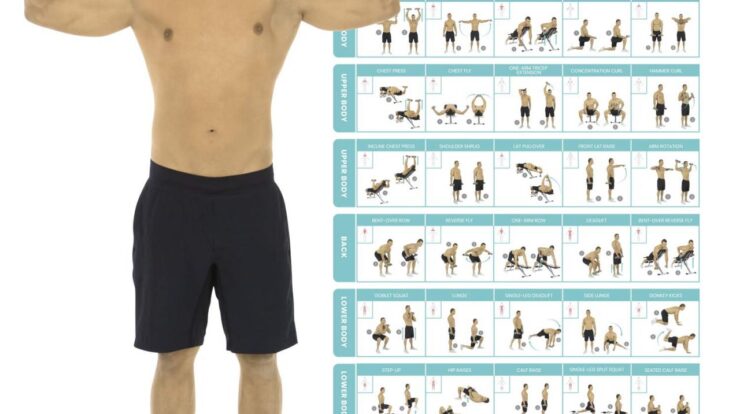
How to cure gum disease without a dentist – If you’re looking to cure gum disease without a dentist, you’ve come to the right place. Gum disease is a common problem that can lead to serious health issues if left untreated. But don’t worry, there are plenty of things you can do at home to get your gums back in shape.
In this article, we’ll discuss natural remedies, home care techniques, dietary modifications, lifestyle factors, and preventive measures that can help you cure gum disease without a dentist.
Natural Remedies

Gum disease is a common problem that can lead to serious health issues if left untreated. While it’s important to see a dentist for regular checkups and treatment, there are also some natural remedies that can help to improve gum health.
Some of the most popular natural remedies for gum disease include:
Salt Water Rinses
- Salt water rinses are a simple and effective way to reduce inflammation and kill bacteria in the mouth.
- To make a salt water rinse, dissolve 1/2 teaspoon of salt in 8 ounces of warm water.
- Rinse your mouth with the salt water for 30 seconds, then spit it out.
- Repeat the rinse 2-3 times per day.
Turmeric
- Turmeric is a spice that has been used for centuries to treat a variety of health conditions, including gum disease.
- Turmeric contains curcumin, a compound that has anti-inflammatory and antibacterial properties.
- To use turmeric for gum disease, you can mix 1/2 teaspoon of turmeric powder with 1/2 teaspoon of water to form a paste.
- Apply the paste to your gums and leave it on for 10 minutes.
- Rinse your mouth with water and repeat the process 2-3 times per day.
Tea Tree Oil
- Tea tree oil is an essential oil that has antibacterial and antifungal properties.
- To use tea tree oil for gum disease, add 2-3 drops of the oil to a glass of water.
- Swish the mixture around your mouth for 30 seconds, then spit it out.
- Repeat the rinse 2-3 times per day.
It’s important to note that natural remedies should not be used as a substitute for professional dental care. If you have gum disease, it’s important to see a dentist for diagnosis and treatment.
Home Care Techniques
Maintaining a healthy oral hygiene routine at home is crucial for preventing and managing gum disease. Proper brushing and flossing techniques, coupled with tongue cleaning and mouthwashes, can effectively remove plaque and bacteria from your teeth and gums, reducing inflammation and promoting gum health.
Brushing Techniques
- Use a soft-bristled toothbrush and replace it every 3-4 months.
- Brush twice a day for at least two minutes each time.
- Angle the toothbrush at a 45-degree angle towards the gum line and use gentle circular motions.
- Brush all surfaces of your teeth, including the inner, outer, and chewing surfaces.
Flossing Techniques
- Use dental floss to remove plaque and bacteria from between your teeth.
- Wrap the floss around your middle fingers and gently slide it between your teeth.
- Move the floss up and down along the sides of your teeth, being careful not to snap it.
- Floss at least once a day, preferably before bedtime.
Tongue Cleaning
Bacteria can accumulate on your tongue, contributing to bad breath and gum disease. Regularly cleaning your tongue helps remove these bacteria.
- Use a tongue scraper or the back of your toothbrush to gently scrape the surface of your tongue.
- Scrape from the back of your tongue towards the front.
- Rinse your mouth with water after cleaning your tongue.
Mouthwashes, How to cure gum disease without a dentist
Antiseptic mouthwashes can help kill bacteria in your mouth and reduce plaque buildup. However, it’s important to choose mouthwashes that are alcohol-free, as alcohol can dry out your mouth and irritate your gums.
If you’re looking for ways to cure gum disease without visiting the dentist, you’ve come to the right place. There are a number of natural remedies that can help to reduce inflammation and pain, and promote healing. Check out this article for more information: how to cure gum disease without a dentist . You’ll find tips on how to use essential oils, salt water rinses, and other natural remedies to treat gum disease.
- Use mouthwash after brushing and flossing your teeth.
- Swish the mouthwash around your mouth for 30 seconds.
- Do not swallow the mouthwash.
Water Irrigators
Water irrigators use a pulsating stream of water to remove plaque and bacteria from your teeth and gums. They can be particularly effective for cleaning areas that are difficult to reach with a toothbrush or floss.
Gum disease can be a pain in the mouth, but it doesn’t have to be a pain in your wallet. If you’re looking for ways to cure gum disease without breaking the bank, there are plenty of options available. One of the best ways to start is by learning about the causes and symptoms of gum disease.
Once you understand what’s causing your gum disease, you can start taking steps to treat it. Click here to learn more about how to cure gum disease without a dentist.
- Fill the water irrigator with warm water.
- Place the tip of the irrigator at a 90-degree angle to your gum line.
- Gently squeeze the handle to release a stream of water.
- Move the tip along your gum line, cleaning each tooth thoroughly.
Dietary Modifications

Maintaining a healthy diet plays a crucial role in preserving the health of your gums. A well-balanced diet provides essential nutrients that support gum tissue and promote overall oral hygiene.
There are a few things you can do to help cure gum disease without a dentist. First, you can try using a saltwater rinse. This can help to kill bacteria and reduce inflammation. You can also try using a mouthwash that contains chlorhexidine.
This is a powerful antiseptic that can help to kill bacteria and prevent gum disease. How to cure gum disease without a dentist . Finally, you can try taking a probiotic supplement. Probiotics are live bacteria that can help to improve your overall health and well-being.
They can also help to reduce inflammation and prevent gum disease.
To maintain healthy gums, it is important to include foods rich in vitamins and minerals such as vitamin C, vitamin D, calcium, and iron. These nutrients contribute to the strength and resilience of gum tissue, helping to prevent inflammation and infection.
Limiting Sugary and Acidic Foods
Excessive consumption of sugary and acidic foods can harm gum health. Sugary foods promote the growth of bacteria that produce acids, which can erode tooth enamel and irritate gum tissue. Acidic foods can also weaken tooth enamel and increase the risk of cavities, which can further contribute to gum disease.
- Sugary foods include candy, soda, processed snacks, and desserts.
- Acidic foods include citrus fruits, tomatoes, and vinegar-based dressings.
Lifestyle Factors
Lifestyle choices can significantly influence gum disease progression. Certain habits, such as smoking and chronic stress, can exacerbate the condition, while others, like regular exercise and adequate sleep, can promote oral health.
Smoking is a major risk factor for gum disease. The chemicals in cigarettes damage the immune system’s ability to fight off bacteria, leading to inflammation and tissue destruction. Stress, too, can contribute to gum disease by suppressing the immune response and increasing inflammation throughout the body.
Conversely, regular exercise and adequate sleep can improve gum health. Exercise boosts the immune system, helping the body combat infection. Sleep allows the body to repair and regenerate tissues, including those in the mouth.
Managing Stress
- Engage in relaxation techniques like yoga, meditation, or deep breathing.
- Exercise regularly to release endorphins, which have mood-boosting effects.
- Connect with friends and family for social support.
- Seek professional help from a therapist if stress becomes overwhelming.
Quitting Smoking
- Set a quit date and stick to it.
- Use nicotine replacement therapy (NRT) or prescription medications to reduce cravings.
- Join a support group or connect with others who are also quitting.
- Reward yourself for your progress and seek support when needed.
Preventive Measures

Regular dental checkups and cleanings are essential for maintaining good oral health and preventing gum disease. These visits allow your dentist to examine your teeth and gums, identify any problems early on, and provide the necessary treatment.
One of the most effective treatments for gum disease is scaling and root planing. This procedure involves removing plaque and tartar from the teeth and gums, and smoothing the root surfaces to prevent bacteria from adhering to them. Scaling and root planing can help reduce inflammation and bleeding, and improve the overall health of your gums.
Tips for Maintaining Good Oral Hygiene Habits
- Brush your teeth twice a day with a soft-bristled toothbrush and fluoride toothpaste.
- Floss your teeth once a day to remove plaque and bacteria from between your teeth.
- Use an antibacterial mouthwash to kill bacteria and freshen your breath.
- Eat a healthy diet that is low in sugar and processed foods.
- Avoid smoking, as it can damage your gums and increase your risk of gum disease.
- See your dentist for regular checkups and cleanings.
Closing Summary: How To Cure Gum Disease Without A Dentist

Curing gum disease without a dentist is possible, but it takes time and effort. By following the tips in this article, you can improve your gum health and prevent future problems.
Expert Answers
Can I cure gum disease without going to the dentist?
Yes, it is possible to cure gum disease without going to the dentist, but it is important to note that some cases may require professional treatment. If your gum disease is severe, you should see a dentist to rule out any underlying medical conditions.
What are some natural remedies for gum disease?
There are many natural remedies that can help to improve gum health, such as salt water rinses, turmeric, and tea tree oil. These remedies can help to reduce inflammation, kill bacteria, and promote healing.
How can I improve my oral hygiene at home?
There are several things you can do to improve your oral hygiene at home, such as brushing your teeth twice a day, flossing daily, and using mouthwash. It is also important to clean your tongue and use a water irrigator to remove plaque and bacteria from your gums.





